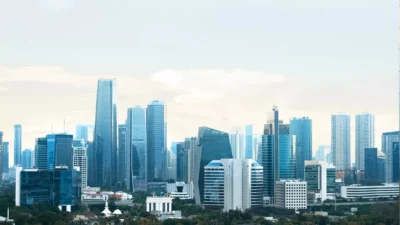Capital move won’t come at expense of Jakarta property market: CBRE
Relocation in fact augurs opportunities for Indonesia’s premier metropolis
Jakarta will remain Indonesia’s business and financial hub in the aftermath of the capital’s relocation from Java to Borneo, opines market observers with CBRE Research.
The archipelagic nation’s future capital will only play host to political and administrative functions, relegating the more commercial aspects to the country’s largest city.
“Any downside for the Jakarta property market will therefore be limited, as while some companies may set up a representative office in the new capital, most occupiers will retain their existing presence in Jakarta, which will continue to play host to the stock exchange, essential financial and business organisations and company headquarters,” CBRE Research said in a statement.
Last month, President Joko ‘Jokowi’ Widodo formally requested permission from parliament to transfer Indonesia’s capital from Jakarta to Kalimantan.
If anything, the relocation will lead to new investment and development opportunities for Jakarta. Authorities recently mulled the idea of selling or leasing out state-owned buildings in the city’s prime areas for developers to redevelop during the relocation. In turn, development firms would be compelled to develop facilities and infrastructure in the new capital.
A large portion of such government-owned assets will be older properties, however, making them a challenge to let in what is an already oversupplied market, CBRE researchers cautioned.
More than one million government employees are expected to move to the new capital over the next decade, galvanising investors and developers to capitalise on real estate opportunities. Migrants will require housing, roads, railways, offices, and other supporting infrastructure, market observers predict.
Recommended
Philippine real estate sees growth in regional markets despite challenges in Metro Manila
Amid pressures, developers and investors are capitalising on a range of opportunities to drive growth in the nation's real estate sector
Bali leads the charge in Indonesia’s rental boom while other regions struggle to keep pace
The rental market is soaring in Bali due to its rich cultural heritage and island charm, while other regions of Indonesia are experiencing less success
Rental markets surge in Asia as digital nomads find new opportunities with visa reforms
As countries in Asia roll out customised visa programmes, rental markets are thriving with the influx of remote workers
China’s hospitality market thrives as developers sell off assets to spark recovery
China’s indebted developers are divesting hospitality assets to generate growth and enhance the outlook of the country’s real estate market









